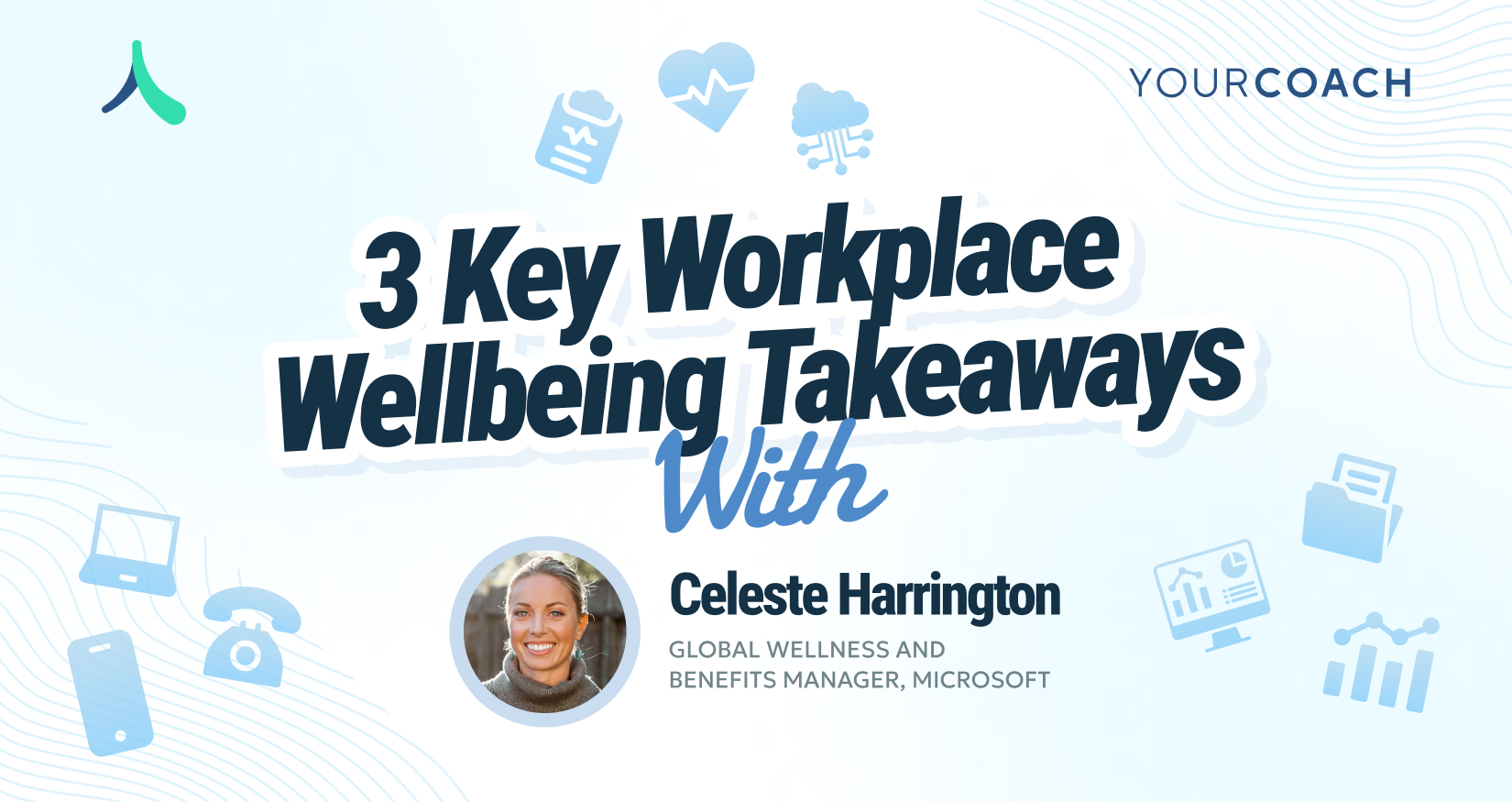
Disruptive Dialogues bring about new ideas and challenge the ways we think. They bring us to new truths and help us show up more effectively and efficiently. For our latest Disruptive Dialogues session, we were grateful to connect with Celeste Harrington, Global Wellness and Benefits Manager at Microsoft and well-being coach, who shifted our mindset around workplace wellness and employee benefits through a lively discussion with our CEO, Marina Borukhovich and COO, Eugene Borukhovich.
Celeste shared several key considerations every human resources and benefits leader should consider when building or sustaining their employer-sponsored health & wellbeing benefits programs. We’ve compiled three of our favorite insights in today’s blog, and have the full video available on our YouTube channel here.
It’s important to start co-evolving benefits to address generational needs and shifts.
According to Harvard Business Review, many workplaces now span six generations – including and expanding quickly into Generation Z. As such, it’s becoming imperative HR and benefits leaders develop employee health & wellbeing programs that provide a value proposition for these diverse generations and their needs. For example, some generations place a higher emphasis on remote or hybrid work and may even take a lower salary in order to ensure this is possible. Some might place more of an emphasis on select health & wellness benefits. Others, especially Gen Z, are looking for tech-enabled wellness benefits that give them the flexibility to tap into services like health coaching through chat or video calls on the go.
Flexible health & wellbeing benefits, like health coaching, often offer adaptable solutions to meet many generations where they are. At YourCoach, for example, we guarantee an entirely personalized solution with options for employees to connect with their coach via video and/or audio as well as ongoing chat with their dedicated coach. Health coaches work closely with clients to identify channels where they’re most comfortable and foster a connection in a way that maximizes their likelihood of leveraging the benefit and therefore their outcomes.
Measuring the ROI of employer-sponsored health & wellbeing benefits is tough, but not impossible.
It’s no secret that measuring something as nebulous as employee health and wellbeing – and further, the effectiveness of health and wellbeing programs – is exceptionally tough. But HR and benefits leaders are often required to justify this spend. While utilization can be a great measure of success, it’s certainly far from perfect. It might depend heavily on how well a given benefit is marketed within an existing organization and how well employees are educated about when and why they should tap into that benefit. When it comes to health coaching, it’s important for employees to understand they can always lean in to health coaching, whether they’re looking to achieve goals related to their mental or physical health and wellbeing; professional goals; social goals; the list goes on.
Beyond utilization, other measurable outcomes like absenteeism and even survey data reporting on overall employee satisfaction, self-efficacy, motivation, stress levels and burnout, and manager POVs can be helpful tools when evaluated in tandem. What it boils down to is that employers must recognize that employee health & wellbeing benefits that deliver are an expense worth spending money on both as it relates to employee acquisition and retention.
Tech-augmented health & wellbeing will continue to break down barriers to access and provide higher-quality support.
Advancements in technology, like virtual health & wellbeing coaching and digital wellness platforms make it more possible for individuals to receive personalized care and support regardless of their location. Not only will this improve access to health & wellbeing support, but it might also improve quality of care and enable health & wellbeing professionals like health coaches to deliver more individualized support. While we’re a massive proponent of these advancements and feel technology can always augment health coaching, we feel strongly the human eye will never be replaced by AI and that the deep human connection health coaching affords (even virtually) is critical and irreplaceable.
A special thank you to Celeste for sharing these important insights with our team. We’re thrilled to host these regular Disruptive Dialogues sessions, which are the first step towards moving the needle, enacting positive change around workplace wellness with progressive leaders at the helm. If you are a progressive HR or benefits leader with an interest in participating, send us a note to team@yourcoach.health.


